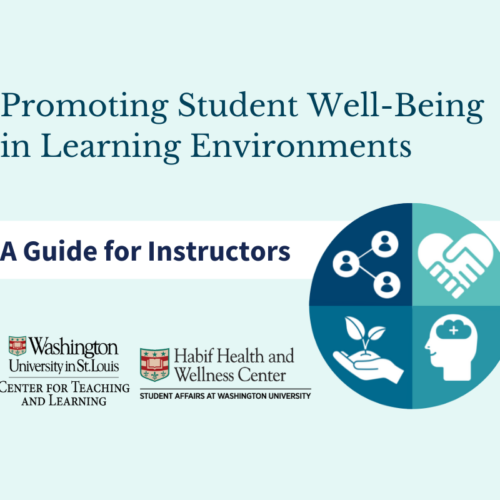Incorporating Wellness Courses into Higher Ed Curriculum
One in four college students reports being diagnosed with or treated for a mental illness, according to a 2018 study in the journal Depression and Anxiety cited in a recent article in The Chronicle of Higher Education. The Chronicle article focuses on how some colleges are integrating wellness courses into their curriculum to address mental health issues among college students. It cites the University of Southern California and the University of Dayton as examples of schools that have successfully implemented mental health and wellness training.
At the University of Southern California, a one-credit course, “Thrive: Foundations of Well-being,” will soon be required for all undergraduates. The course meets twice weekly, with one session devoted to lectures by guest professors and the other to small group discussions called “connection sessions.” The class, which started last fall, already has rave reviews from students: Data collected from student surveys last semester shows that 93 percent of participants had a different perspective after the course, and most felt closer to their peers.
Even though a course like the one at USC isn’t a solution to all mental health problems on campus, it can help reduce barriers to students getting the help they need, Ashley Uyeshiro Simon, an associate professor of clinical occupational therapy at USC who helped develop the course, said in the article. “”Having a multifaceted wellness approach means that you’re able to meet the diverse needs of every student,” she said. “It means they’re more comfortable seeking that help out.”
The University of Dayton is also focusing on wellness training for undergraduates. The school added a mental-health training module to its optional curriculum for students in campus housing, as well as a recurring incentive for students to engage with the material. Students who use the module or participate in local programming or events rack up points that put them in a better position to select housing next year.
Dayton uses a module from Kognito, a company that creates simulations to help people modify their behavior. The school decided against making the module a first-year requirement, but it still encourages undergraduates to actively participate in the training. Dayton’s efforts seem to be paying off: About 25 percent of the university’s undergraduates completed the module this past year.
“Our counseling center is busy, just like everybody else’s, but that can’t be the only solution to the trends we’re seeing on campuses,” Sarah DeWitt, coordinator of health education and wellness promotion at the University of Dayton, said in the Chronicle piece.






